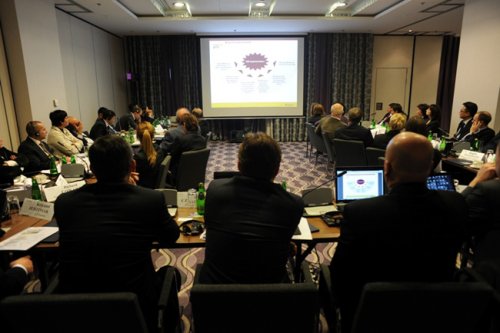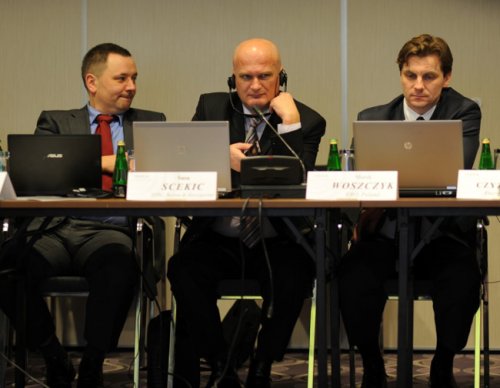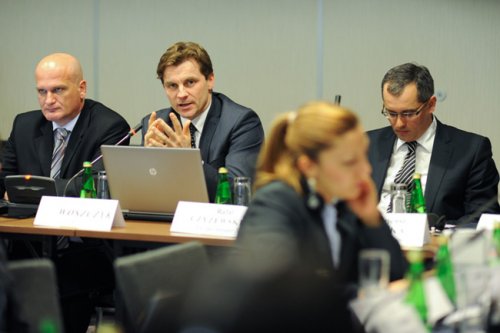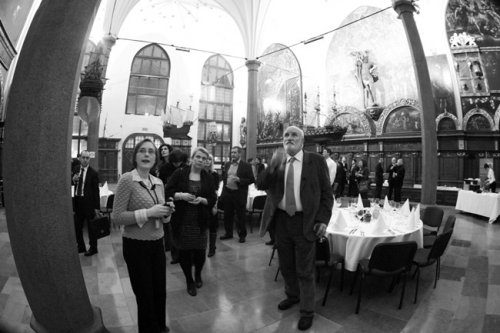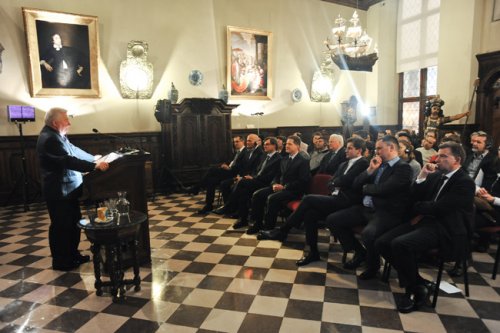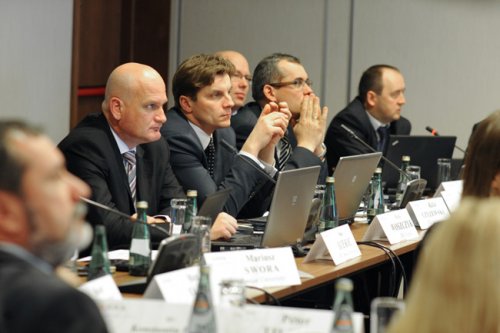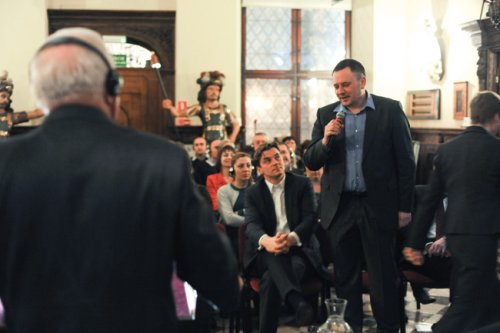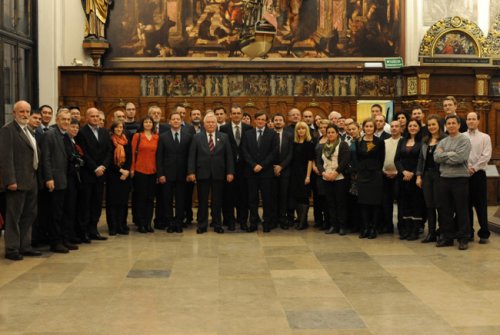URE President co-hosted the Energy Regulators Regional Association (ERRA) workshop on Regulatory Aspect of Smart Grids and Smart Metering
On 16-17 February 2012 in Gdańsk, 34 regulatory bodies representatives - members of the Energy Regulators Regional Association (ERRA) - took part in the Workshop on Regulatory Aspects of Smart Grid and Smart Metering. The Workshop was organized in conjunction with the Winter meeting of the ERRA Licensing/Competition Committee with the purpose to serve as a platform for learning and discussing available practices in smart grid technologies and regulation. The Workshop held on 16 February was hosted in Gdansk, Poland, by the Energy Regulatory Office (URE) of Poland and Energa Operator SA of Poland.
34 energy regulators were present from Albania, Armenia, Bosnia and Herzegovina, Croatia, Hungary, Georgia, Kyrgyzstan, Latvia, Lithuania, Macedonia, Moldova, Mongolia, Montenegro, Poland, Romania, Russian Federation, Serbia, Sweden, Turkey, Ukraine, UNMIK Kosovo and the USA.
The morning session devoted to regulatory perspective commenced with a presentation of Marek Woszczyk, President of the Energy Regulatory Office and ERRA Presidium Member. Answering the question How to Cope with Smart Grids in the ERRA Melting Pot of Regulatory Regimes, Marek Woszczyk presented a concept of an output-based incentive regulation. President Woszczyk emphasized that among many ambitious goals of smart grid deployment like increasing sustainability and renewables share or achieving satisfactory level of security and quality of supply, the first step towards smart grids is smart metering. URE President underlined that the suggested approach ensures appropriate balance between the scope of innovations, cost-efficient evolution of the network and customer interests. It also facilitates direct evolution into the smart grid by market rules, determination of minimum requirements and efficient financial rewards and penalties. Finally, it enables appropriate balance between position of all stakeholders and benefits of all grid users.
His predecessor at the Energy Regulatory Office, Mariusz Swora introduced smart metering after the 3rd EU liberalisation package with special focus on the EU’s legal provisions and ERGEG’s recommendations. The US perspectives were introduced through a case study of Idaho by Matt Elam of the Idaho Public Utilities Commission and through the introduction of the Alternative Energy Portfolio Standards Act of Pennsylvania by Scott Gebhardt, both representing the National Association of Regulatory Utility Commissioners (NARUC).
The afternoon session was dedicated to the utility perspective of smart metering and presenters were representatives of Polish Energa Operator S.A and Energa Obrot. Rafal Czyzewski’s presentation on behalf of Energa Operator underlined specific conditions and guidelines for smart metering system implementation in Poland, focusing on AMI metering data management/metering data acquisition system, telecommunications among the system infrastructure and smart meters. He shared his company’s experience in AMI system implementation emphasizing the need to set up industry-wide standards, provide full devices interoperability and ensure exchangeability between suppliers. The solution being implemented by Energa Operator with its modularity and vendor-independence will constitute a basis for fully functional Smart Grid concept implementation.
Before the open discussions started Richard Cowart of Regulatory Assistance Project and Konstantin Petrov of KEMA spoke about the values smart grids create for distributors and customers. Mr. Petrov listed some of the barriers to smart grid development such as consumer resistance, economic and technical barriers and the legal and regulatory framework. He stressed that smart grids are a challenge for regulation. It must adapt to it and at the same time regulation must form part of the smart grid development and design process.
Material presented during the workshop is available on ERRA website.
*
During the evening social program, workshop participants had a privilege to meet Mr. Lech Wałęsa, the President of The Republic of Poland in the years 1990 - 1995, Nobel Peace Prize Laureate, historical leader of the “Solidarity” movement. The meeting took place in a historical Artus Court in Gdańsk.
**
Following the ERRA workshop, on 17 February the ERRA Licensing/Competition Committee was held in Gdańsk. Malgorzata Wesolowska, Head of Unit in the Department of Energy Enterprises and URE Member in the ERRA Licensing/Competition Committee, presented a Polish Case Study on Regulatory Aspect of Third Party Access to the Network.
***
ERRA is a voluntary organization of 32 autonomous energy regulatory bodies primarily from the Central European and Eurasian region, with Affiliates from Asia, the Middle East, Africa and the United States. ERRA was established in December 2000 for the purpose of exchanging information and experience among energy regulators. The Energy Regulatory Office (URE) of Poland is one of the founding members of ERRA and since then it has been an active member of the Association.
